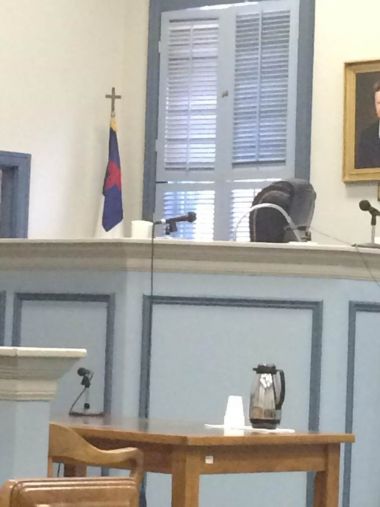Atheist group forces U.S. courthouse to put down Christian flag

The atheist group Freedom From Religion Foundation (FRFF) recently scored a victory over Bryan County Courthouse in Georgia, U.S.A., after it managed to get its officials to take down a Christian flag from its Superior Courtroom.
The Wisconsin-based organisation, through staff attorney Elizabeth Cavell, filed a complaint against the Christian flag because it "creates the perception of government endorsement of Christianity."
Cavell wrote on a letter addressed to Bryan County Clerk of Courts Rebecca Crowe dated July 6 that the "inherent religious significance of the Christian flag and Latin cross is undeniable."
"It is unconstitutional for a government entity to display a flag with a patently religious symbol and meaning on its grounds," she said. "You must take immediate action and remove this flag from the courthouse. Please respond in writing at your earliest convenience with assurances that this unconstitutional display will be removed."
After receiving the letter, Crowe forwarded it to county attorney Leamon Holliday, according to Bryan County News. It was Holliday who decided that the flag should be removed to avoid potential litigation.
For her part, Crowe said the flag was "reluctantly" removed. "It's not in there any longer," Crowe said. "I'm not sure who removed it or where it is, but it's not there."
Meanwhile, FFRF co-president Anne Laurie Gaylor welcomed the Bryan County Courthouse's decision to take down the Christian flag, saying their group appreciates that the courthouse "finally decided to stop playing the role of constitutional outlaws."
"Bryan County is not a Christian county, Georgia is not a Christian state and the United States is a secular — not a Christian — nation. Reason and the Constitution have prevailed," she said. "Cases could certainly be overturned if there was any discussion by jurors about a defendant's beliefs or if a judge made an unobjective statement in that regard."











